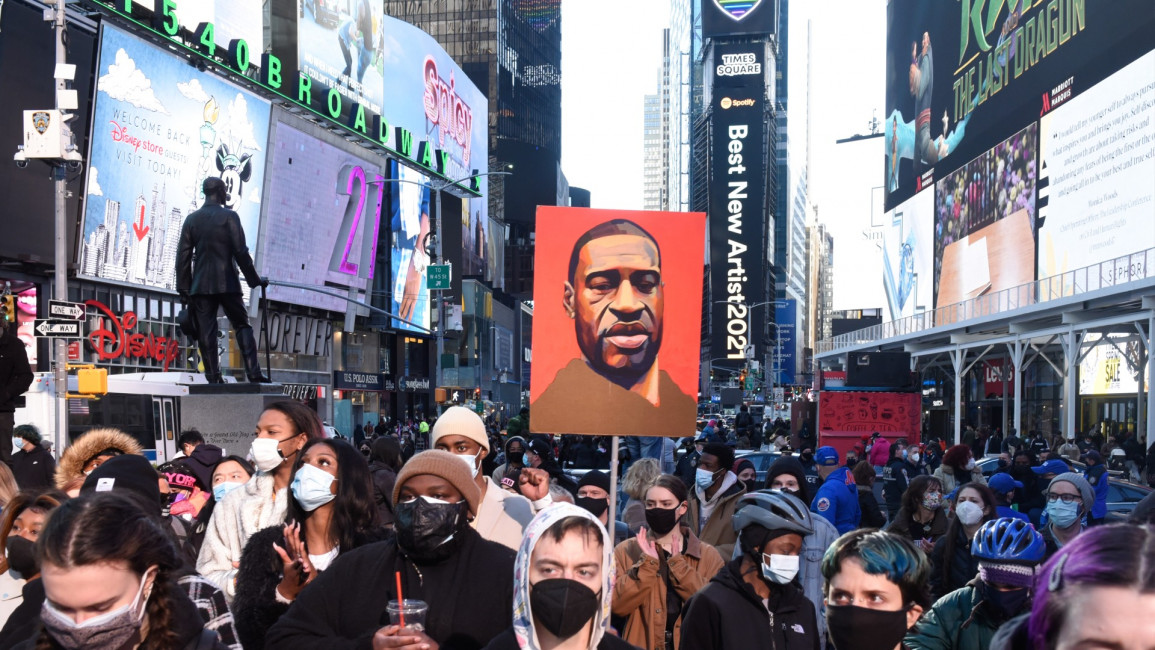Floyd murder trial 'defining' chance for justice: UN rights chief
The trial of a US police officer facing murder charges for the death of George Floyd is a crucial and defining opportunity for justice, UN rights chief Michelle Bachelet said Friday.
However, it is a chance denied to countless other families, because "so many cases" involving the deaths of people of African descent never make it to court, Bachelet told the UN Human Rights Council in Geneva.
In the US state of Minnesota, Derek Chauvin, a white police officer, is facing murder and manslaughter charges over the death of Floyd, a 46-year-old black man.
Floyd's death on May 25 last year sparked widespread protests in the United States and around the globe.
As Floyd's trial gets under way, Bachelet recalled that "this crucial, defining opportunity for justice is denied to countless other families."
"So many cases involving deaths of people of African descent never make it to court, and the pain of so many families goes unacknowledged or even denied."
The United Nations High Commissioner for Human Rights was updating the council on the implementation of its resolution 43/1, adopted in June last year following an urgent debate on systemic racism sparked by Floyd's killing.
The final resolution, on systemic racism and rights violations by law enforcement agencies against Africans and people of African descent, made no specific reference to the United States.
Bachelet said that despite current heightened visibility around the issue, incidents of police brutality and racial discrimination against people of African descent continue to occur.
"No police officer or any other agent of any state should ever be above the law," the former Chilean president said.
Bachelet said law enforcement and judicial authorities reflected their societies and "unless we address the systemic racism within all our institutions, we can never 'fix' the police alone".
She added that awareness of the history of colonialism, slavery and discrimination were needed to address racial injustice.
Bachelet will produce a report to the council in June to recommend an agenda for dismantling systemic racism and police brutality against Africans and people of African descent, and to advance accountability and redress for victims.
Follow us on Facebook, Twitter and Instagram to stay connected



